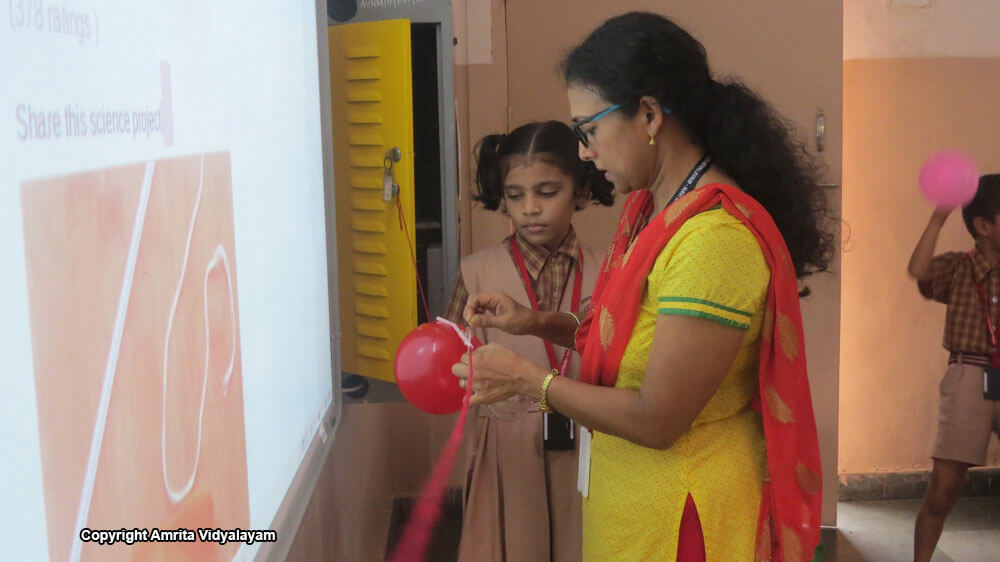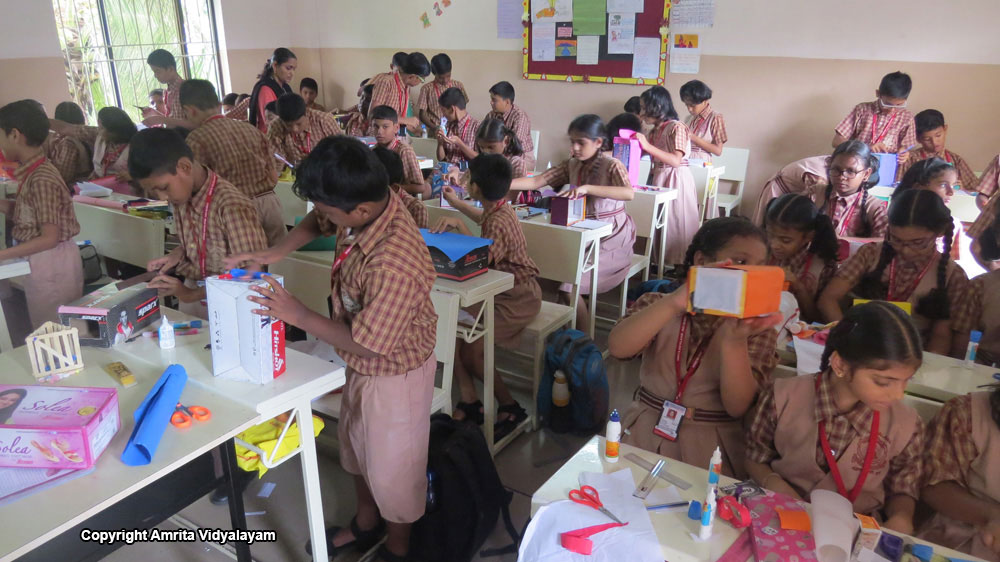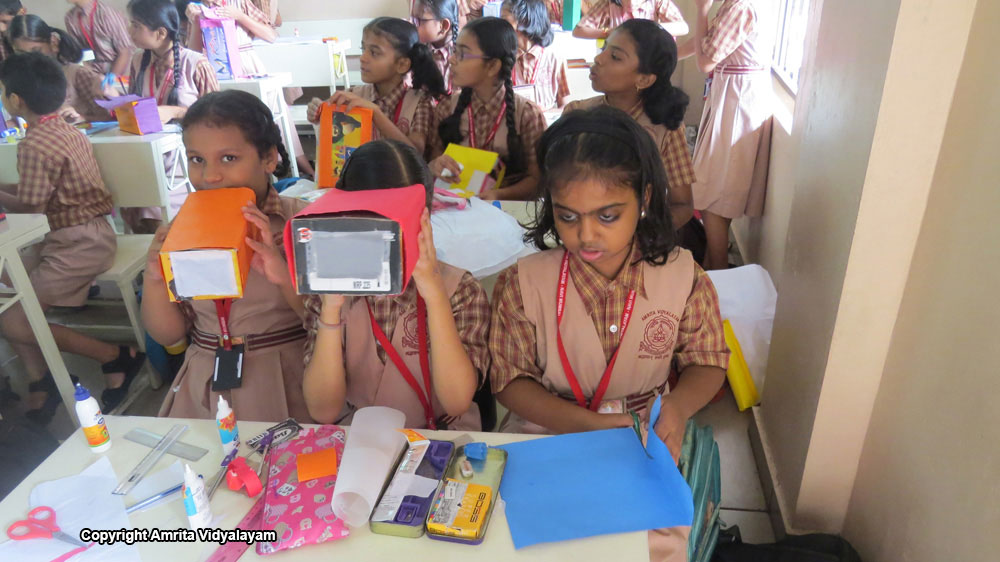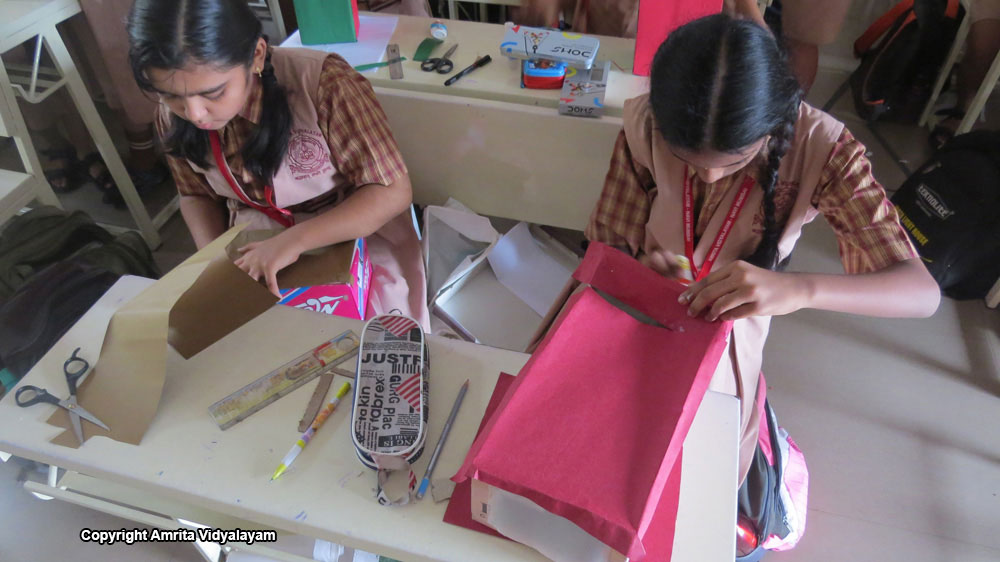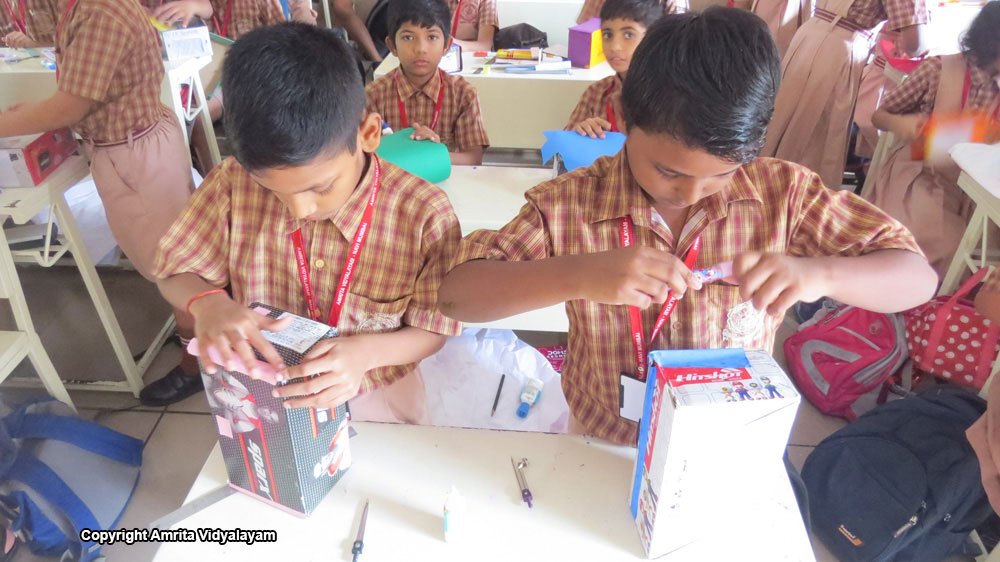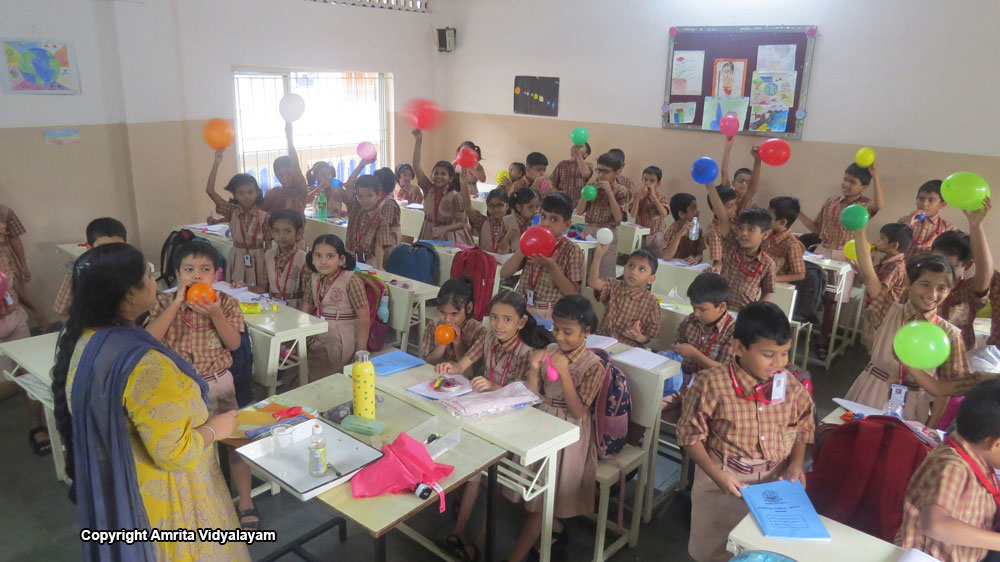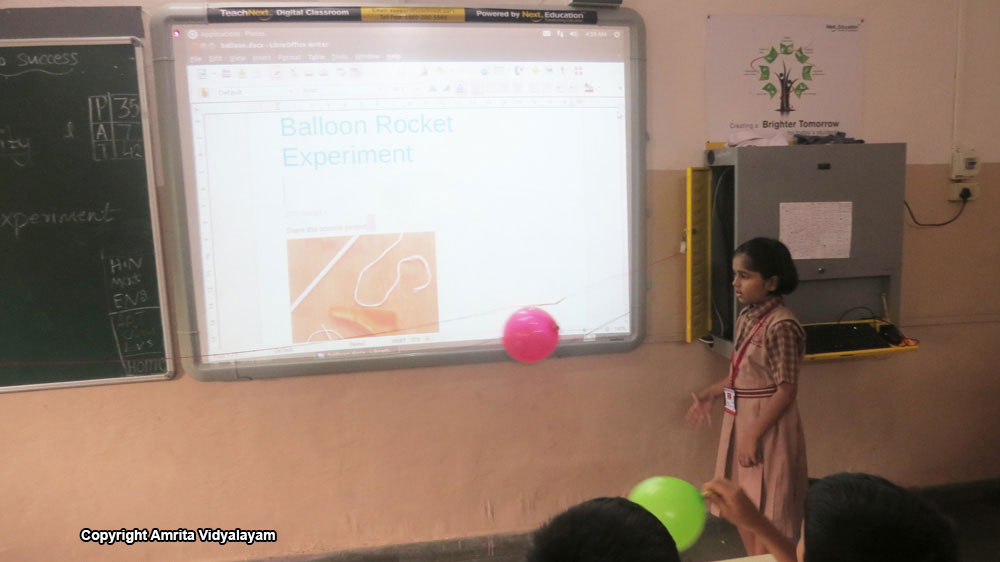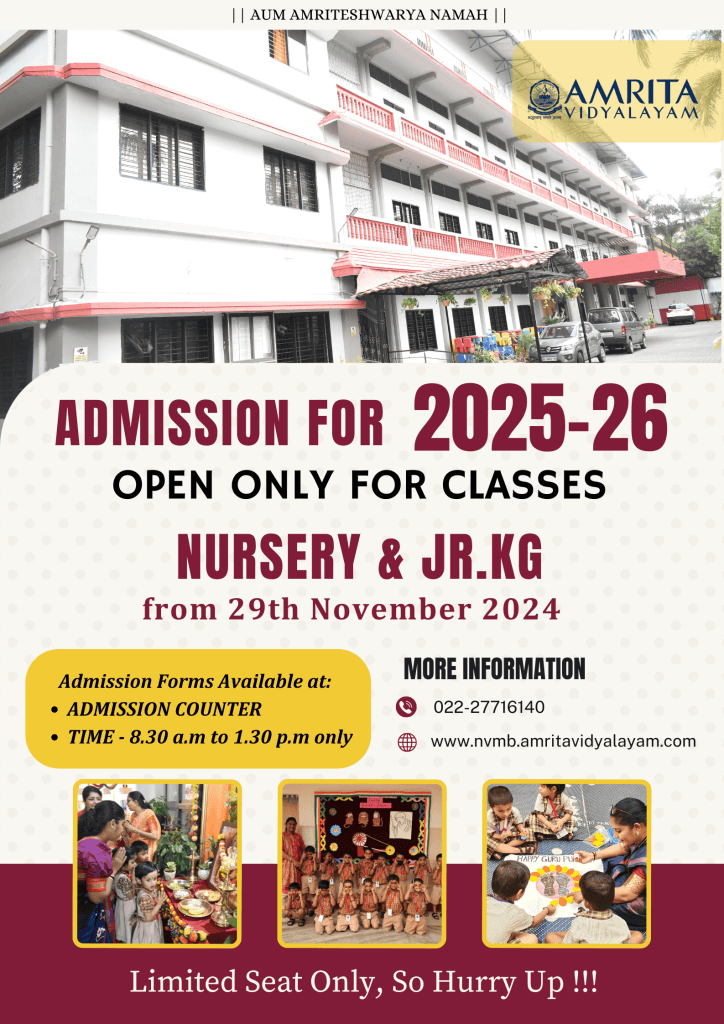Science Club gives students the opportunity to conduct hands-on experiments and enhance their scientific knowledge.
The launch of Chandrayaan-2, India’s second lunar exploration mission certainly triggered the curiosity of many. The 3rd and 4th grade students seized the opportunity to learn the basic aerodynamics of a rocket through the “Balloon rocket experiment” using balloon, string, straw and tape. It taught them about the pressure which propels rockets into space, and about action and reaction. The force from the air moving in one direction propels the balloon in the other direction, much like a rocket. The children enjoyed this simple experiment and had fun doing it over and over again with balloons of different shapes and sizes.
Students of classes 5 and 6 made a simple camera out of a shoe box – a camera with a tiny aperture called PINHOLE, instead of a lens. By doing this activity, they learnt that light travels in a straight line from the source to our eyes. They also observed how light creates shadows and how the image appears upside down. They followed detailed instructions given by the teachers to make their own personal pinhole cameras, and are eager to put it to use to study the nature of light and to safely watch solar eclipses.
Students of classes 7 and 8 learned to detect the presence of sugar in various fruit samples using Benedict’s Solution. Teachers first explained the concept and procedure to the students and thereafter took them to the chemistry lab. Students performed the experiment in a group. With the Benedict’s test, the color changed from blue to brick red, indicating the amount of sugar present in various food samples.

